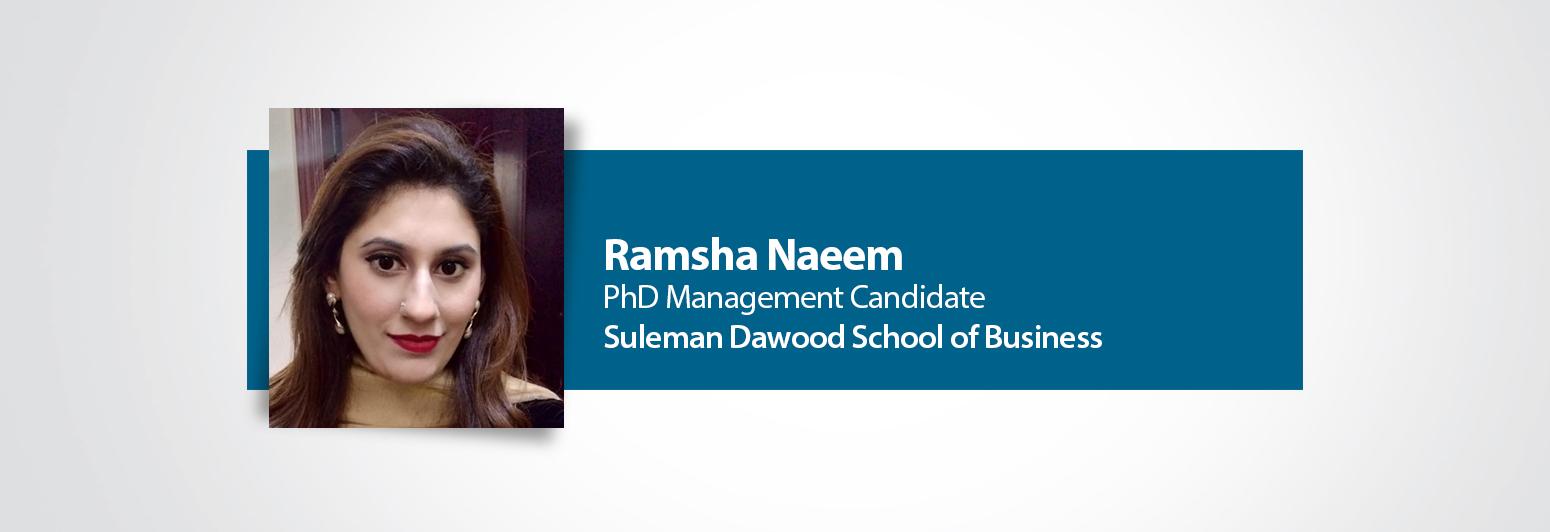
April 19, 2022
Dissertation Title: “The Process of Faultline Activation and Deactivation: The Effects of Power Struggles, Entitlement Beliefs, Justice Climate and Distribution Rules on Group Performance”
The dissertation is by Ramsha Naeem, PhD Management Candidate.
Date: Tuesday, April 19, 2022 - Tuesday
Time: 10:00 am
Venue: Faculty Lounge (SDSB building, 4th floor)
Zoom Link:
https://lums-edu-pk.zoom.us/j/94155453398?pwd=RjRQMitzUnJXbjJVUFJGcVUzMTNIZz09
Meeting ID: 941 5545 3398
Passcode: 083146
Dissertation Defense Committee
- Dr. Arif Nazir Butt - Supervisor & Chair
- Dr. Muhammad Abdur Rahman Malik – Member, SDSB
- Dr. Muhammad Adeel Zaffar – Member, SDSB
- Dr. Abdul Karim Khan – Member, UAEU
- Dr. Tariq Jadoon ‐ Member, LUMS
- Dr. Muhammad Abbas - External Examiner, FAST
Abstract
This study examines the impact of diversity faultlines on group outcomes. It proposes intragroup entitlement beliefs as a trigger that activates dormant faultlines. Groups come into conflict with one another frequently due to their dependence on finite organisational resources. When faultlines are activated, subgroups feel inequity due to unequal distribution of power within a group combined with feelings of being entitled. Drawing on equity theory, the subgroup having more power will try to maintain its power while the subgroup having low power will make efforts to become more powerful. Such efforts lead to intragroup power struggles, which negatively affect group performance. Furthermore, intragroup justice climate and distribution rules are proposed as moderators between activated faultlines and intragroup power struggles.
The study includes two experiments and one field study to test the proposed hypotheses. Results indicate that faultlines are activated due to entitlement beliefs of group members. Furthermore, intragroup power struggles mediated the relationship between activated faultlines and group performance in all three studies. The negative relationship between activated faultlines and intragroup power struggles was moderated by distribution rules in study 2 and intragroup justice climate in study 3.

